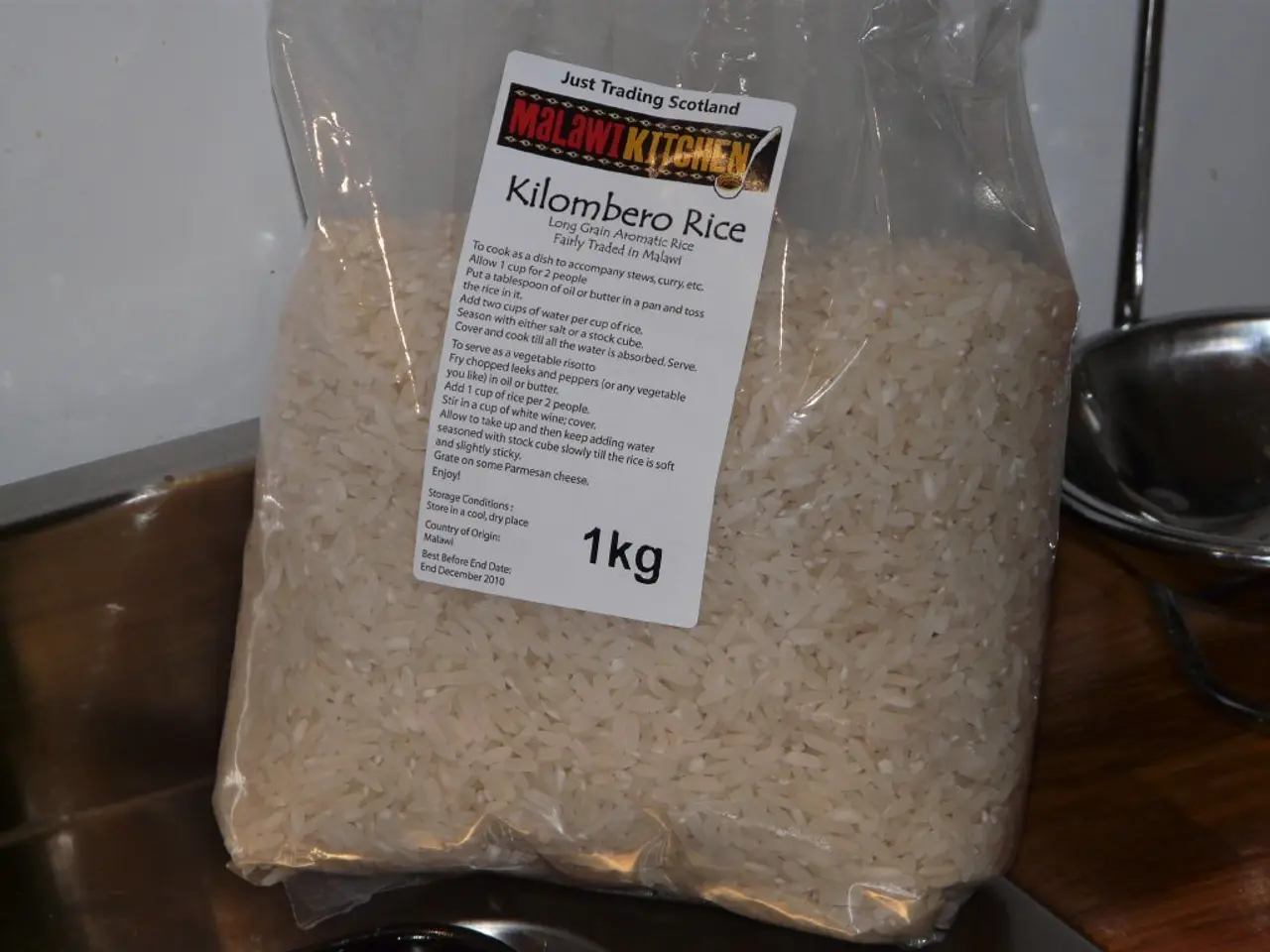Vietnamese Food Association requests Trade Ministry to contest Philippines' suspension of rice imports
The Philippines' decision to suspend rice imports for two months starting from September 1 has sparked concerns about its potential impact on Vietnam's rice production and exports.
The suspension accounts for a significant portion of Vietnam's total rice shipments, making up 44.3% of the exports over the past period. In the first seven months of this year, Vietnam exported 2.44 million metric tons of rice to the Philippines.
The move by the Philippines could potentially disrupt the trade relationship between the two countries, as Vietnam is a significant exporter of rice to the Philippines, which was the country's biggest rice buyer last year, accounting for 46.7% of Vietnam's total rice exports.
The suspension might lead to a decrease in export prices of Vietnamese rice, as excess supply might build up due to the reduced demand from the Philippines. Vietnam's 5% broken rice price has already fallen by nearly 30% from a year earlier.
Moreover, the import ban might affect the overall export volume and revenue, as it reduces the demand pressure on Vietnamese rice. Traders might need to adjust their market strategies by seeking alternative buyers or adjusting their supply chains to compensate for the reduced demand from the Philippines.
Other major rice exporters, such as Thailand and India, might benefit if they can step in to fill the demand gap left by Vietnamese rice in other markets. However, this could also lead to increased competition for Vietnam's exports.
The Vietnam Food Association has asked the country's trade ministry to challenge the Philippines' decision to suspend rice imports for two months. The association, along with the Ministry of Industry and Trade, did not immediately respond to requests for comments regarding the matter.
A trader with knowledge of the matter stated that the suspension would harm local rice production in Vietnam. Another trader based in Ho Chi Minh City stated that the Philippines is suspending rice imports this year to protect their farmers ahead of an expected bumper harvest.
Shipments to the Philippines in September and October were higher than the monthly average, suggesting that the Philippines' decision could have significant impacts on rice production in Vietnam. However, the full extent of these impacts is yet to be fully assessed.
Early this year, Vietnam signed a memorandum of understanding on rice trade with the Philippines, which could potentially mitigate some of the effects of the import suspension. The Philippines' decision to suspend rice imports is an effort to protect local farmers impacted by falling prices during the harvest season.
In conclusion, Vietnam's rice sector may face challenges in terms of pricing and market dynamics due to the Philippines' import suspension. However, the impact will depend on how effectively Vietnam can adapt and explore other export opportunities.
Top Stories: The Philippines' rice import suspension could potentially disrupt Vietnam's weather of excess supply, affecting the prices of its 5% broken rice. Weather, the Philippine's decision might lead to a shift in trade relationships, with potential benefits for other major rice exporters like Thailand and India.







